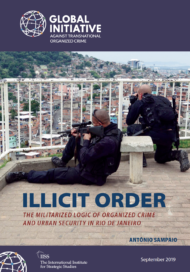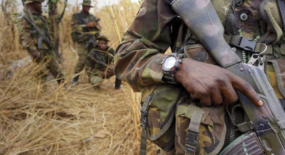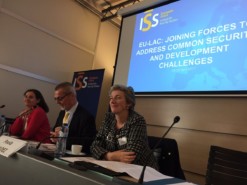Posted on 12 Sep 2019
This report examines the factors sustaining the territorial armed confrontation between various state and non-state actors in Rio’s slums, and asks, why has this gone on for so long and why have the impressive improvements made under pacification been reversed with a regressive move to the old pattern?
As this report argues, Rio’s security challenge is, at its core, linked to the consolidation of an illicit order in marginalized territories and the concomitant decline of state legitimacy. This guiding argument is a useful lens through which to analyze several recent developments in public policy, political economy and violence that have reinforced or intensified this problem.
To demonstrate how this illicit order gained strength and became consolidated, this report is organized in three parts:
- The first section explores the current challenges facing policymakers and society, and the use of military force against organized crime.
- The second section traces the origins of localized territorial disputes by examining the combination of unmanaged urbanization, transnational crime and the territorial ambitions of criminal groups. It then examines the evolution of state responses that led to a widespread militarization of security and criminal actors.
- The final section explores the illicit order during the first 10 years of the pacification policy




